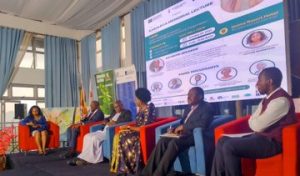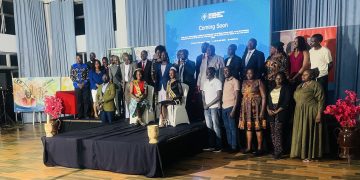Hoima — The legacy of Omukama Cwa II Kabalega, the legendary monarch of Bunyoro-Kitara, was powerfully revived in Hoima City as the Kabalega Foundation officially launched the Kabalega Institute of Leadership & Cultural Studies (KILCS) during the 2nd Kabalega Memorial Lecture held at Hoima Resort Hotel.
Themed “Culture, Knowledge & Innovation: Reimagining Leadership for Community Transformation,” the event brought together traditional leaders, academics, policymakers, and youth representatives to explore how Africa’s past can guide its future.
Speaking at the official launch, Prince Dr James Isagara Kisoro, Executive Director of the Kabalega Foundation, described KILCS as a visionary step toward nurturing leadership that reflects African values, knowledge systems, and cultural integrity.
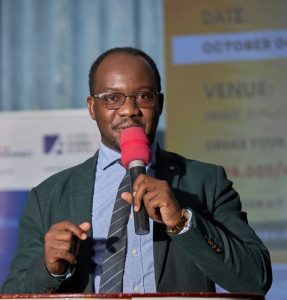
“We don’t want these ideas to end in this room,” Dr Kisoro said. “KILCS will be a platform for research, leadership training, cultural preservation, and youth mentorship — all grounded in African realities.”
He explained that the institute will train leaders across political, cultural, and entrepreneurial sectors; promote indigenous knowledge systems; and equip youth with ethical leadership and innovation skills rooted in African identity.
“Culture and innovation are not enemies — they are partners in progress,” Dr Kisoro added. “By holding our heritage close while embracing technological advancements, we open ourselves to new opportunities.”
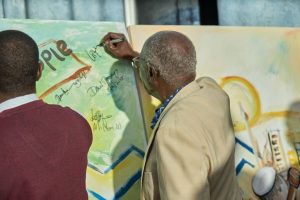
From Reflection to Action
The memorial lecture, organised by the Kabalega Foundation in partnership with the Bunyoro-Kitara Kingdom and supported by Konrad Adenauer Stiftung (KAS), Bank of Uganda, and other partners, served as both a commemoration and a call to reimagine leadership.
Professor Julius Kiiza, a lecturer of Political Economy, Public Policy and Development Studies in the Department of Political Science and Public Administration at Makerere University, reminded the audience that true leadership is about service and transformation.
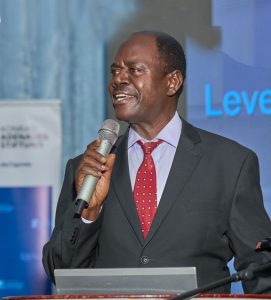
“Leadership is not about occupying space,” asserted Prof Kiiza in his keynote address. “It’s about catalysing change. Kabalega led with purpose, not power — a lesson we must reclaim today.”
He warned against the tendency to treat leadership as self-preservation or entitlement, arguing that authentic leadership must be visionary, accountable, and people-centred.
Prof Kiiza explained that Omukama Cwa II Kabalega’s leadership style mirrored what modern military science calls “mission command” — leadership that combines clear vision, local accountability, and community participation. “Kabalega’s resistance to foreign domination was not just military—it was ideological. He believed that a nation without dignity has no destiny.”
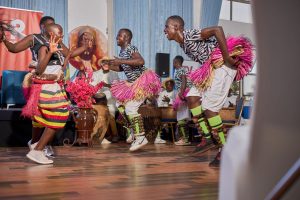
Prof Kiiza cautioned against confusing culture with stagnation: “Culture is not the enemy of progress—it is its foundation. People who abandon their culture abandon their compass.”
He argued that Africa’s leadership crisis stems in part from the erosion of cultural values and self-belief: “We must stop borrowing systems and start building on what is authentically ours. Development must speak our language.”
Prof Kiiza also addressed the broader governance challenges on the continent, saying, “Africa’s tragedy is not poverty of resources—it is poverty of leadership. We have rulers who love power more than purpose.”
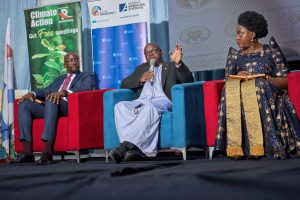
He urged leaders to prioritise integrity, innovation, and inclusion. He warned that systems rewarding mediocrity and patronage undermine progress and breed dependency. “A good leader does not seek followers; he or she builds other leaders.”
Collaboration and Legacy
Mr Bernard Mukhone, Programmes Manager of Konrad Adenauer Stiftung Uganda, emphasised empathy, inclusion, and collaboration in leadership. “True transformation requires partnerships — between traditional and modern institutions, civil society and government, local wisdom and global ideas,” Mukhone said. “Leadership must be a force for dignity and transformation for all.”
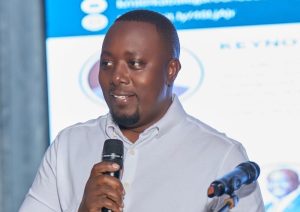
Representing the Bunyoro-Kitara Kingdom, Owek. Atuha Moses expressed pride in the collaboration and the continuity of Kabalega’s vision: “This lecture series rekindles the spirit of our ancestors and inspires us to lead with wisdom and humility. We honour Kabalega not as a relic of the past, but as a guide for today’s leadership.”
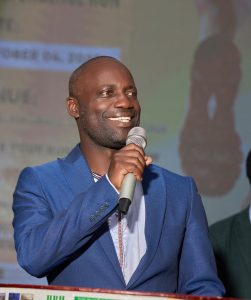
From Bank of Uganda, Owek. Robert Owagonza Abwooli linked economic transformation to cultural grounding: “As custodians of our financial systems, we recognise the vital role culture plays in shaping economic behaviour and sustainable growth. The Kabalega Institute’s approach will equip new generations with the tools to lead Uganda into a future that respects both tradition and progress.”
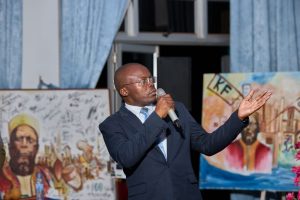
Dr Cindy Evelyn Magara, who moderated the session, guided a diverse panel through discussions on leadership, culture, and technology. “We must develop leadership models that are not borrowed but born from our own histories and lived experiences,” Dr Magara said.
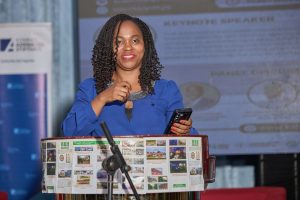
Youth Voice and the Call for Mentorship
Youth leader Innocent Turyahikayo made a passionate appeal for youth inclusion in leadership and national development: “Who is mentoring our young people to become the leaders of tomorrow?” he asked. “We need structures that place young people at the centre of decision-making — not at the periphery.”
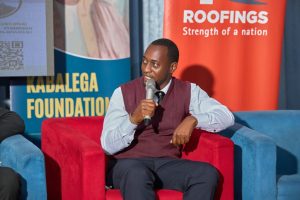
He commended the establishment of KILCS as a timely response to this gap, noting that it will “nurture a generation of leaders who are both culturally rooted and globally competent.”
Prince John Nyabongo Olimi, a second-generation descendant of Kabalega, reflected emotionally on the family legacy: “Kabalega founded one of the earliest leadership academies in Galuhuma, long before modern governance structures. If others can preserve culture while advancing AI, so can we. We don’t have to lose ourselves to progress.”
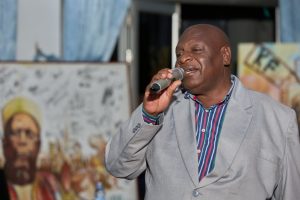
The key takeaway from the conversations focused on five areas for action: rebuilding regional unity (“Unify Over Fragmentation” and “Revive Ubuntu”), redefining economic growth through a focus on innovation and youth over simple employment, and structurally integrating cultural institutions and youth into leadership and development partnerships.
